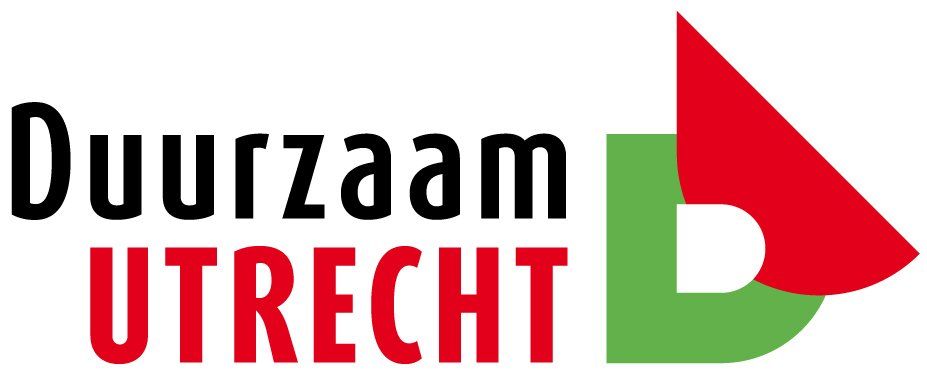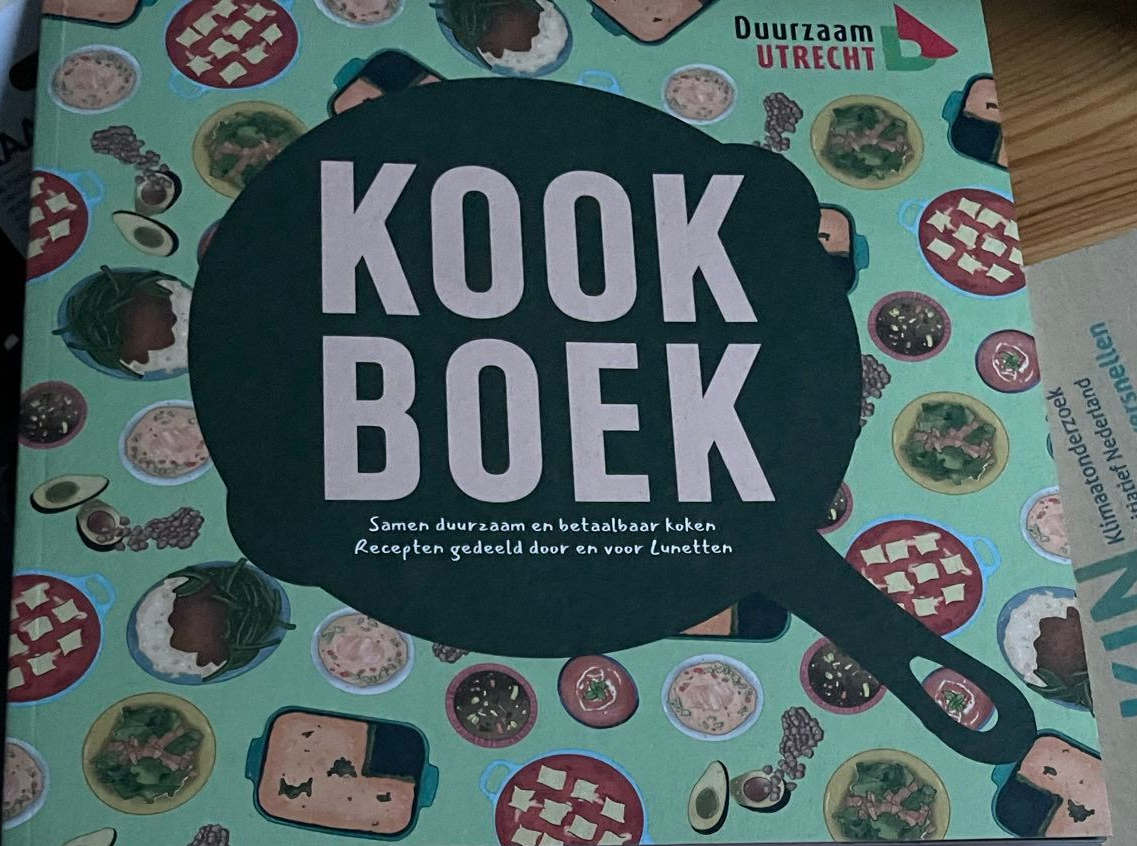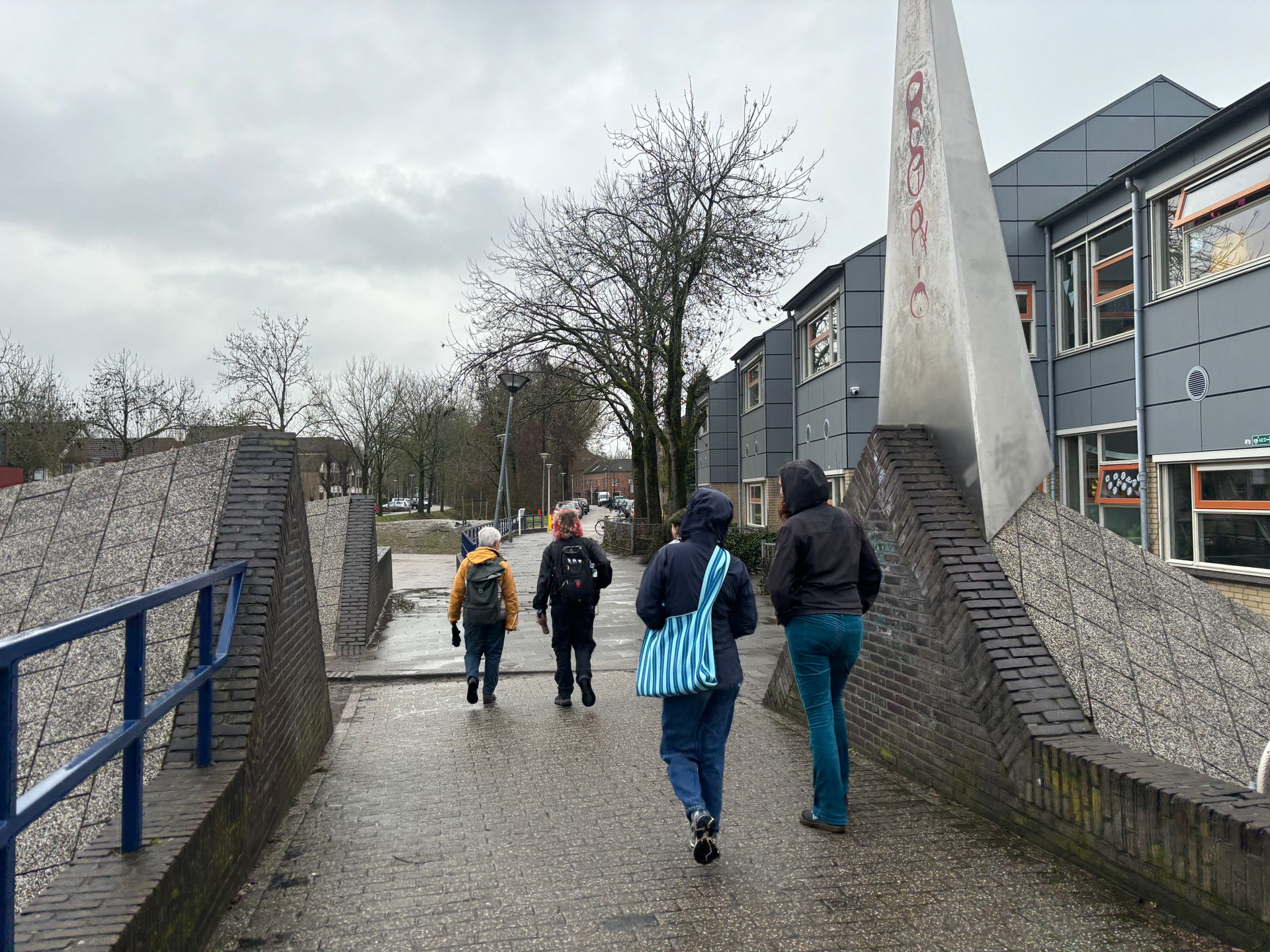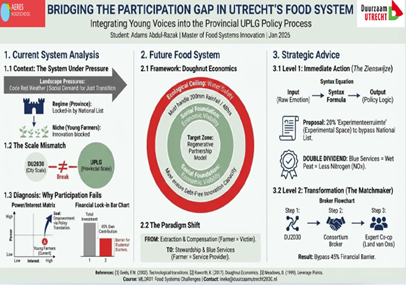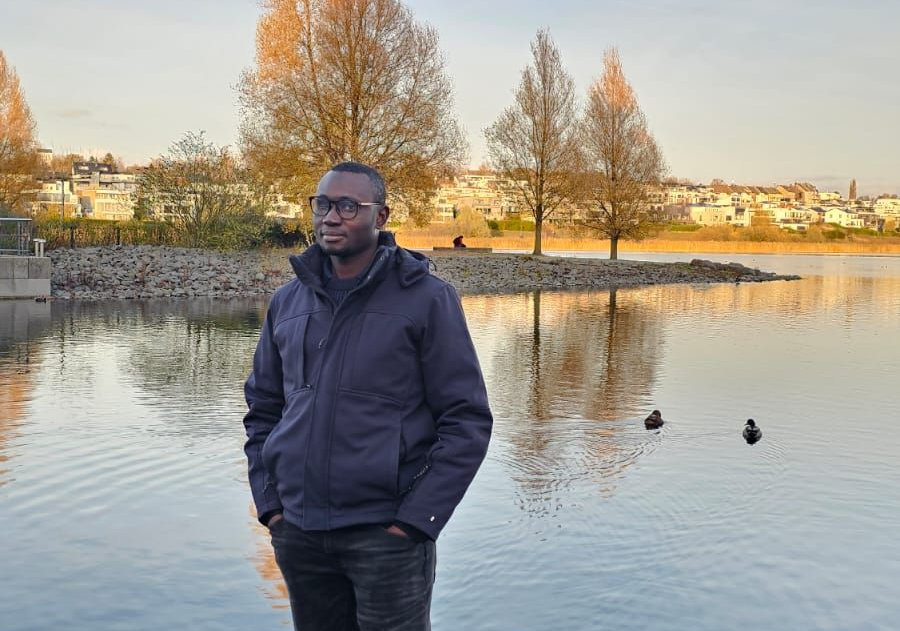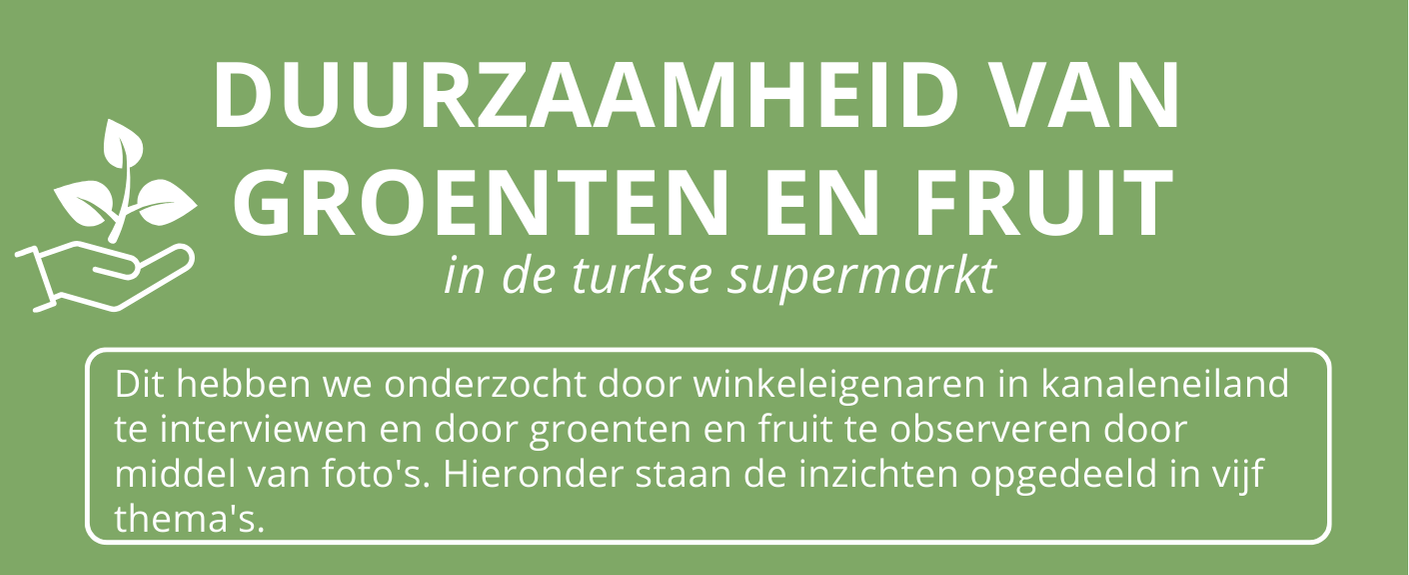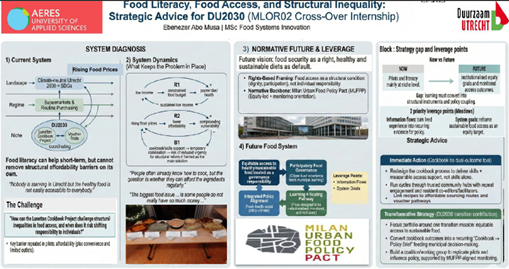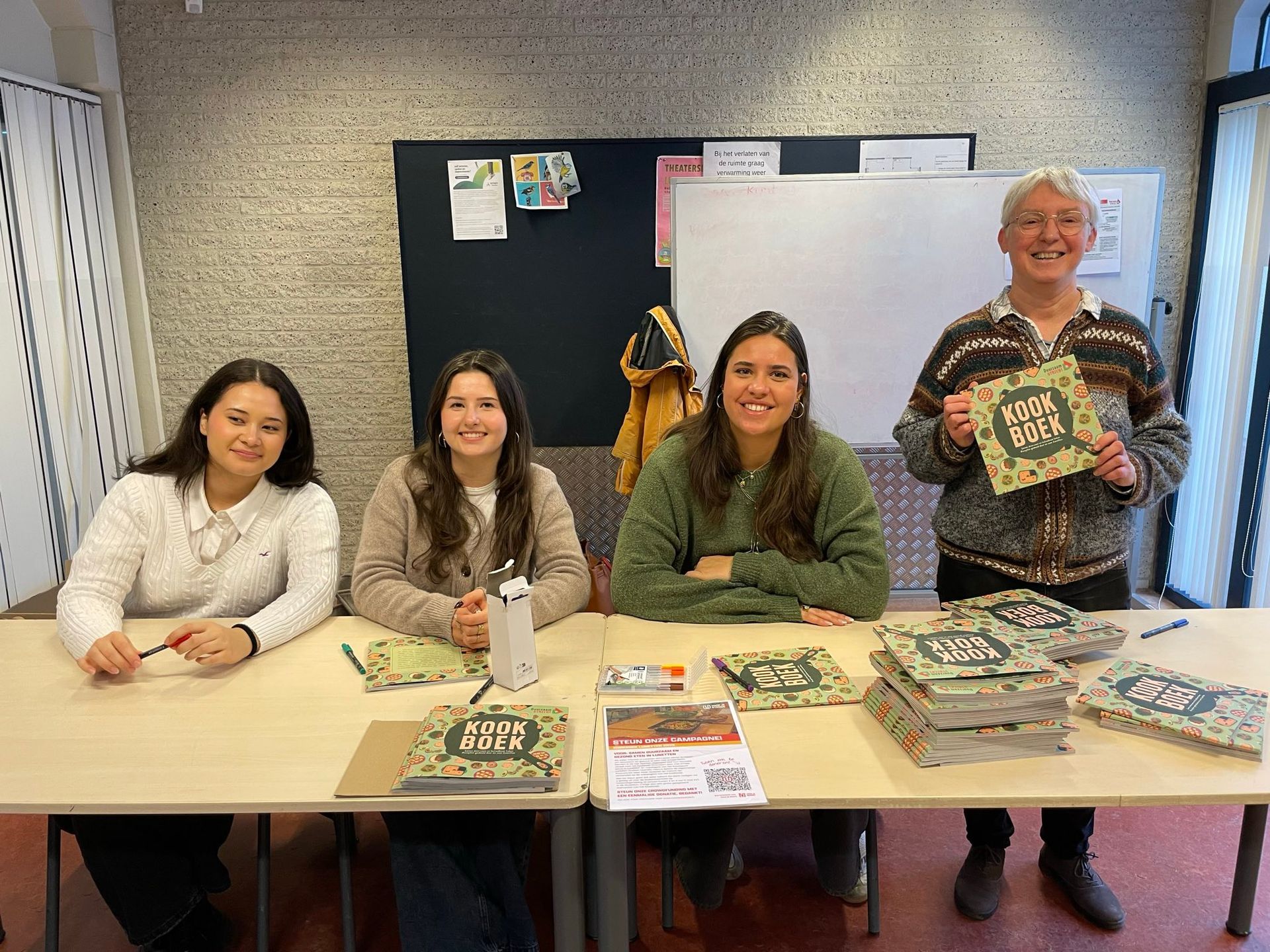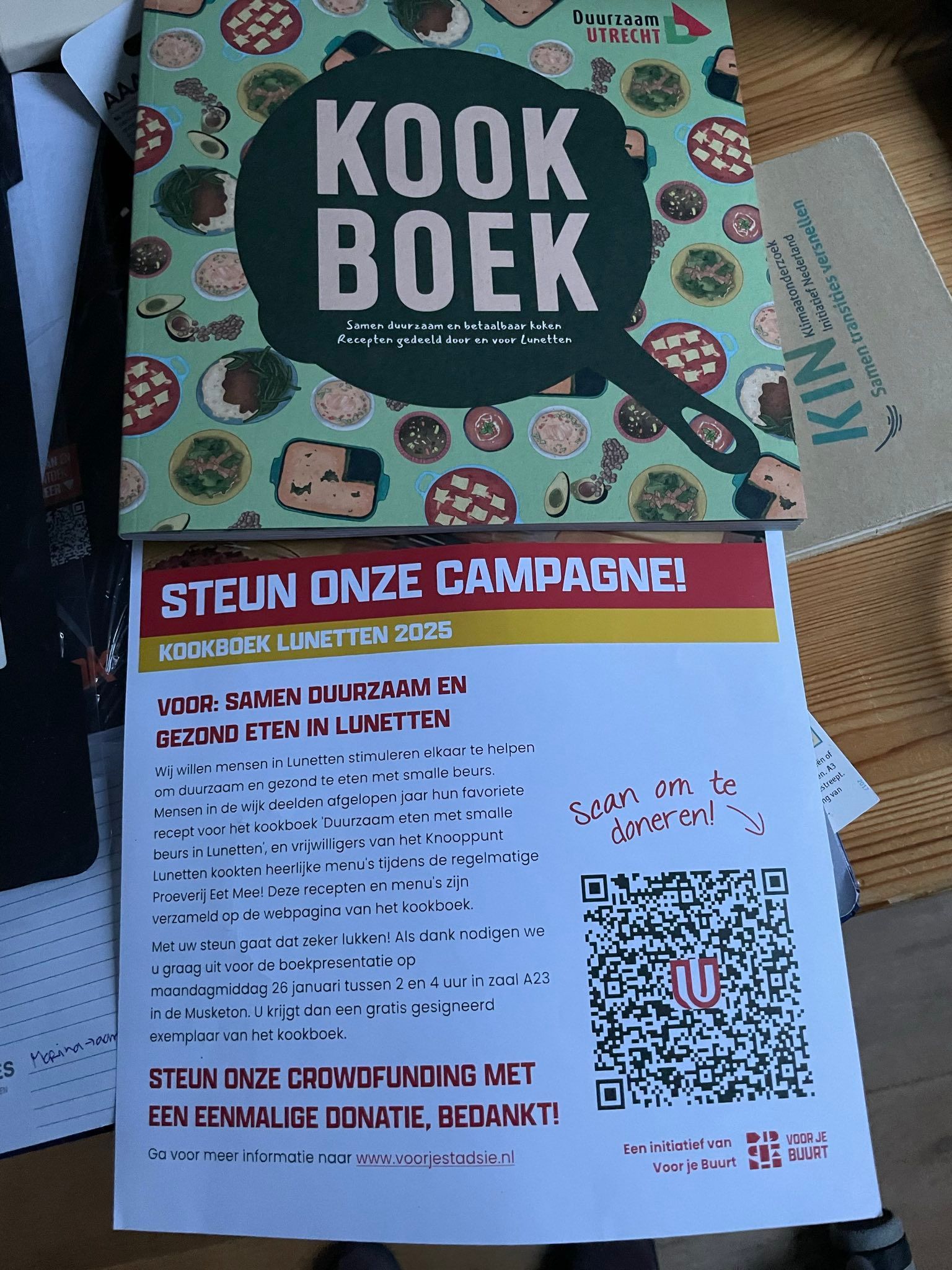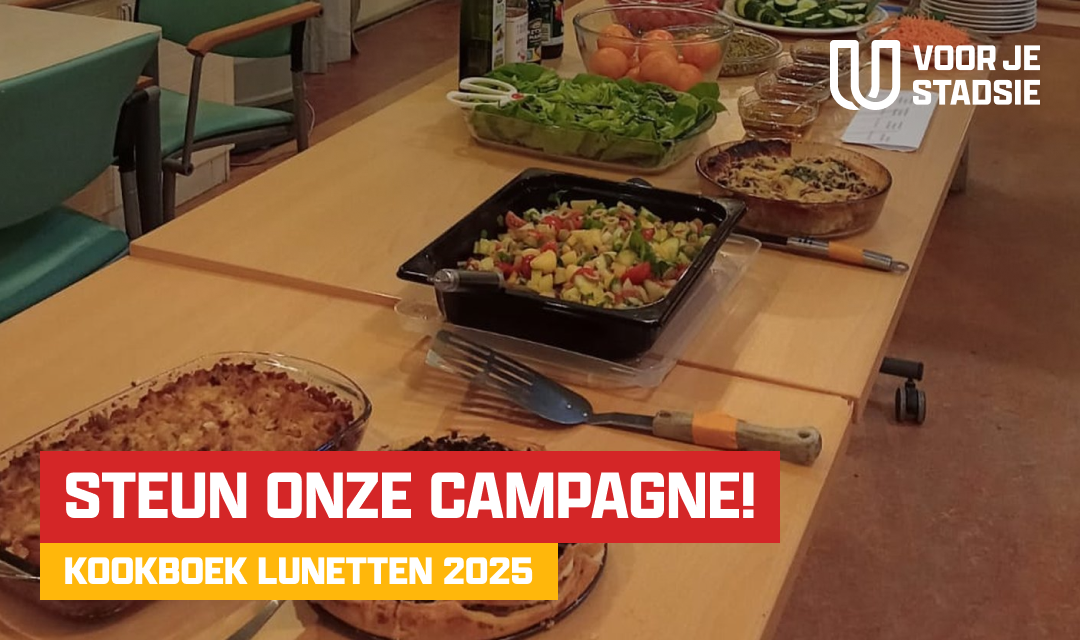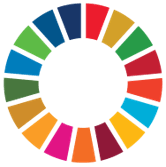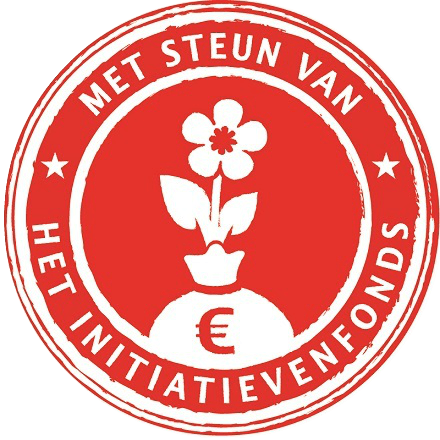What are the opinions of residents of Utrecht on transportation?
Report on brainstorm in A Beautiful Mess on 26 June 2024
Duurzaam Utrecht 2030 organized the brainstorming session in cooperation with De Voorkamer by having participants join us at a table discussion, which were held around spread-out posters that had written guiding questions on them. One poster in Dutch, one in English. The questions were as follows:
● Where do you normally need to go every day?
● How long does it take you to get to your destination?
● Is public transport convenient for you? Accessible? Reliable?
Our idea with brainstorming is not limiting thoughts but rather guiding them, so these served as starter questions to give participants an idea of what we want to understand. We expressed that overall we wanted to see which were the most impertinent needs that they faced in moving to where they have to go.
We found that there was a division between the two groups formed during the answering of the guiding questions; with one group focusing on traveling within Utrecht as a day-to-day approach, and the other group focused on traveling within the Netherlands and visiting other cities. This division arose from the individual demands one group faced, as they all expressed that they had friends and family in different cities in the Netherlands. This is connected to the reality of being an immigrant in a foreign country, where the people you know have also traveled to look for the same future for their own family, but still want to maintain connections.
The group needing to travel outside of Utrecht identified that the amount they had to pay for the train was above their budget. Conversations were had on the different subscriptions available with an OV-chip card; 40% off, Weekend-Vrij– and participants already evaluated these options. However, some explained that they had their children living in a different city due to facilities in housing and where they could receive schooling. This creates a more frequent demand for travel.
The group discussing mobility within Utrecht discussed sentiments surrounding the bus and making use of an individual bike. The bus was identified as having an inconvenient cost. In the end, it makes it completely inaccessible considering additionally that normally to reach places they must go, they need two buses. Considering the double fee there and back, it is inaccessible to use the bus as a way to cross the city and more often get to destinations outside the center. Some participants outlined that they find using their bikes more difficult as they find that repair shops, bike routes, or even where to get bikes unclear. We were even told that some participants faced difficulty mastering biking to an extent where they felt comfortable riding in the center.
Some suggestions that came out of the brainstorming were based on how participants could have access to better-outlined information. Those with interest to travel outside of Utrecht were not aware of options such as FlixBus; a bus company connecting routes all over Europe, with several within the Netherlands. This option adds more travel time but if booked in advance can prove to be much more economically accessible than using trains via NS. Moreover, to make biking more accessible we will develop a more comprehensive guide of where to buy bikes, where they could be bought second hand, or even outline well how “shared bike” networks work such as TIER or SwapFiets. With outline information on where to acquire bikes and where to get them fixed, we mentioned an organization that helps teach biking by a participant without receiving the name. We will also include this initiative within the biking segment of the transportation guide.
With clear information on the options to visit different cities and how to mobilize with a bike throughout the city, we open up options for different people in similar situations. Allowing for more transportation options outside of the economically inaccessible ones.
After the brainstorm, we found out that all residents in the AZC are offered a U-pas. Adults can transfer maximum 75 euros credit per year to an OV-chipcard, and for kids, they can buy a bike at a participating bicycle shop. A contact person based at the AZC can explain this, but the information on the website of U-pas is only in Dutch.


